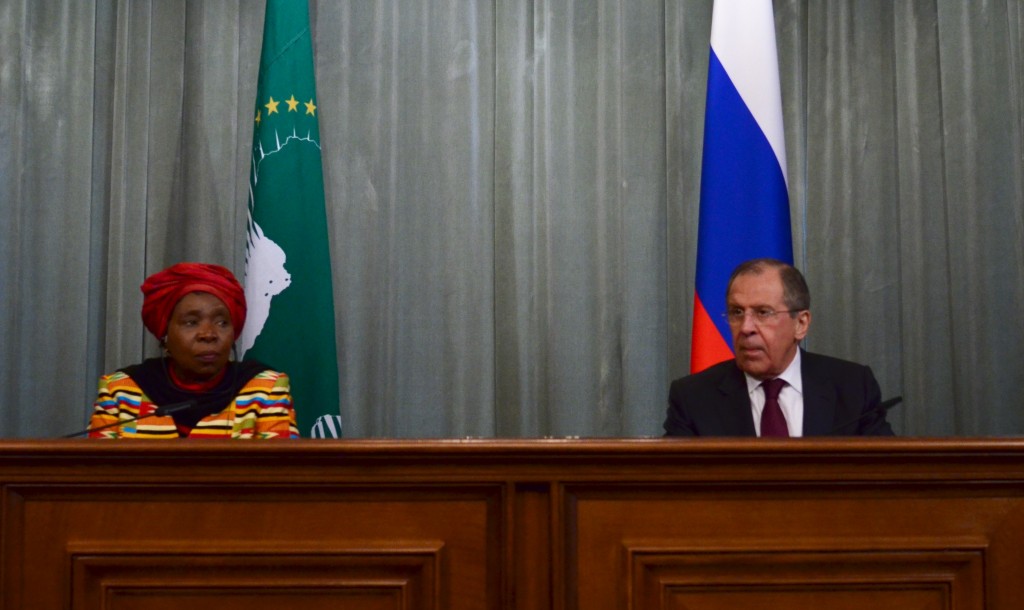By Libya Herald staff.

Tunis, 25 April 2016:
A senior Russian official has confirmed to the Libya Herald that Moscow will not recognise . . .[restrict]the Government of National Accord (GNA) led by prime minister designate Faiez Serraj until it is first approved by a vote by the House of Representatives.
Russia would like to work with the GNA and backed the Libyan Political Agreement (LPA), the official said, pointing out that it had voted for it on the Security Council. “We fully support the Skhirat agreement which gives legitimacy to the Presidency Council,” he stated, noting that the LPA itself stated that there had to be a vote by the HoR.
“That has not happened. Until it does, the GNA cannot be considered legitimate,” said the official who asked not to be named.
Russian Foreign Minister Sergey Lavrov last week stressed that Moscow completely supported the LPA. He was speaking at a press conference following talks with chairperson of the African Union Commission, Nkosazana Dlamini-Zuma.
Russia had, he said, added a provision to the Security Council resolution on the LPA on the need to ensure the inclusiveness of the agreement. That meant that the HoR had to sign off on the agreement. It was wrong to try and force the situation, he said, accusing western governments of trying to do just that.
“Russia insists on this approach and believes that it is crucial to refrain from trying to resolve serious issues in haste.” The world should be over hasty in trying to implement the LPA. “We should be patient . . . in moving toward reuniting all parties in Libya, instead of making statements on imposing sanctions against those who are not ready to join this process.” Such proposals, he said, “can already be heard from some hotheads within the UN Security Council.”
Western states were being far too quick to propose sanctioning those who do not agree with them, he said. “Russia will firmly oppose these attempts” he declared, not only because sanctions did not work, but because they undermined the prospects for achieving national reconciliation.
Getting Libyans to cooperate was more important than getting the international community to cooperate on Libya, he declared.
“So far, some of the ideas put forward by the most active Western players along with some UN representatives do nothing to consolidate the country,” he said.
It made more sense to invest more time and effort to make the process sustainable, he said, “rather than striving to meet some deadline for reporting on the result, all the while risking that the situation will spiral out of control.”
He was particularly critical of the UK.
“Russia opposes the line of some of our partners, including the Europeans who are openly promoting it, and I have heard that similar discussions are also gaining traction in Great Britain, who posit that there is no need to wait until all parties to the Libyan conflict join the Skhirat Agreement, since the Al-Serraj government is in place and can request foreign assistance, which will include military advisors, special forces and even troops to fight terrorists.”
In contrast, Russia, he said, wanted to resolve the Libyan crisis through international efforts which should be carried out by consolidating Libyan society and helping Libyans work out positions that would unite the nation, not by coercion.
Fighting terrorism was important, he said, but it was important to remember how terrorism had gained a foothold in Libya in the first place. It happened, he claimed, because NATO had illegally intervened in Libya in 2011, without any mandate from the UN Security Council. Its interpretation of the UN “no fly” resolution had led to a catastrophe, he said.
It was, he further stated, “striking that people who again come up with these kinds of thoughts have such short memories”.
Commenting on Lavrov’s statement, the Russian official added that it was not likely that, unlike Western foreign ministers, Lavrov would visit fly to Tripoli for talks with Serraj soon, although it was possible that the Russian ambassador might. [/restrict]







